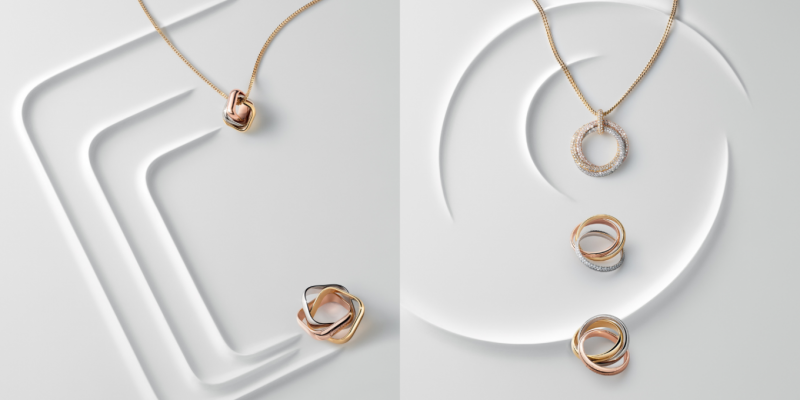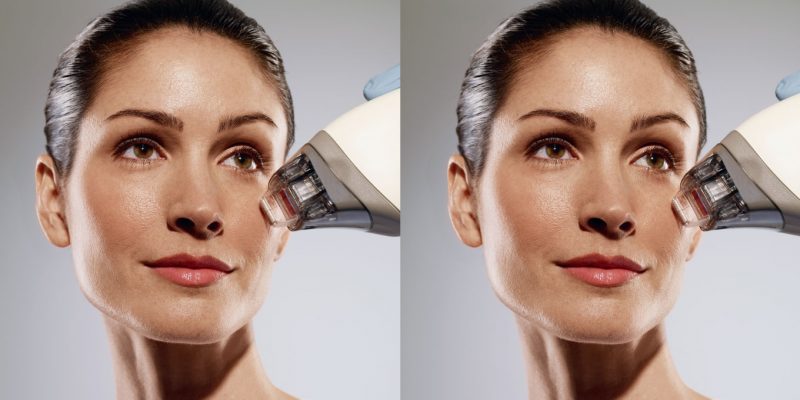Beauty
Skin care advice: Is your skin stressed out?
Are stress and hormones keeping you from that flawless, gorgeous skin you crave? We ask the experts for their best skin care advice to treat stressed out skin.
by : Lia Parsley- Dec 2nd, 2011
With clear, luminous skin emerging as one of the biggest beauty trends for Spring 2012 — we saw flawless, dewy complexions at Isabel Marant, Stella McCartney and Christopher Kane — it might be time to seek some skin care advice and assess your skin’s health and whether external stressors are contributing to a less than perfect complexion. To get to the bottom of the physiological relationship between skin and stress, we spoke with Sarah Kugelman, Founder and President of stress-focused skin care line Skyn Iceland (skyniceland.com) to get her skin care advice on how and why our skin reacts to stress, and what we can do to with our skin care routine to maintain balance both inside and out.
1. Kugelman explains that stress affects skin in five different ways:
• Congestion and breakouts
Stress spikes the hormone cortisol, which in turn stimulates an over-production of oil that clogs pores, causing
blackheads and breakouts, says Kugelman.
• Redness and irritation
High stress levels can aggravate and worsen pre-existing skin conditions like redness, eczema and psoriasis. If your skin is acting out more than it normally would, assess your external stressors and evaluate whether your skin is suffering as a result.
• Dullness, dryness and dehydration
“When I left the corporate world due to high levels of stress, my skin was drastically dehydrated — I had been surviving off of caffeine and adrenaline for years,” says Kugelman. If that kind of hectic, fast-paced lifestyle sounds familiar to you, it’s time to assess the quality of your skin as a signifier of your overall health.
• Hyperpigmentation
Hyperpigmentation (those brown, uneven spots that appear) is often exacerbated by stress. “The adrenaline, cortisol, and hormones that your body releases when it goes into a stress-induced ‘fight or flight’ mode accelerate hyperpigmentation,” says Kugelman.
• Accelerated aging
“Not surprisingly, accelerated aging is one of the easiest ways to tell if you have stressed out skin,” says Kugelman. Stress causes the breakdown of collagen and elastin (our skin’s support structure), therefore you develop
premature fine lines around the eyes and mouth as signs of elevated stress levels.
More skin care advice on how to treat your skin from the inside out on the next page …

2. How to treat stressed skin from the inside out
• Reduce or eliminate external contributors
Caffeine, alcohol, sugar and processed foods are at the top of this list. To maintain balance within the body, foods and beverages that spike insulin levels, induce inflammation and create an acidic environment within the body should be reduced or outright avoided.
• Go organic
Wherever possible, always try to go organic with your meals, especially with produce and animal products. Pesticides, additives and hormones all negatively affect the body’s natural equilibrium and contribute to inner stress and outer symptoms thereof.
• Connect mind to body
Through regular exercise and deeper practices like yoga and meditation, maintaining a stress-free emotional state through physical activity can make a huge difference in your overall health. Hot yoga and Pilates, regular steaming and saunas are also effective tools to induce sweat, release toxins and tackle stressed skin in general.
3. How to topically treat stressed skin
• Simplify your regimen
When it comes to your
skin’s health (and the stress it might be experiencing), the simpler the regimen the better. A unique property of
Skyn Iceland is that it’s not tailored to skin type — this is a one-type-fits-all formula, assuming that stress is the catalyst for the many different skin ailments that we experience. “The line was conceived on the notion that skin needs to be addressed from a standpoint of stress and not from a focus on the topical ailments themselves,” says Kugelman.
• Use “clean” products free of harsh chemicals
Some potentially harmful or allergy-inducing ingredients to steer clear of include: Parabens (often listed as methylparaben, probylparaben, butylparaben, ethylparaben & benezylparaben), sulfates, DEA/TEA, petrolatum (petroleum jelly), propylene glycol, PVP/VA copolymer, and diazolidinyl urea.
• Get regular facials
Getting into a routine with a professional esthetician is a great way to get the ball rolling to healthier, stress-free skin. Aim for a
monthly facial at first, followed up by once every two or three months to maintain healthy skin regardless of how stressful your external environment is.
If you’re experiencing external stress like tight deadlines, trouble sleeping, a lack of time and an unbalanced diet, your skin might be acting out as a cry for help. As our largest organ, the quality of the skin is the easiest way to tell what’s going on inside the body and whether we need to make changes. If you suspect stress is affecting your skin, start with a simplified skin care regimen free of harsh chemicals and ditch processed, refined foods and caffeinated beverages for a cleaner diet that doesn’t tax the body’s natural balance. To maintain a sense of calm, physical exercise like cardio and yoga can centre our emotional states and contribute to a balanced lifestyle where stress is nothing if not entirely manageable.
Read more:
The best foundations under $30
Great pore refining products
Perfect match: 5 flawless foundations
Skin care’s new cleansing oils
Newsletter
Join our mailing list for the latest and biggest in fashion trends, beauty, culture and celebrity.
Read Next

Fashion
Cartier Celebrates 100 Years of the Trinity Ring
What better way to celebrate an anniversary than with a new collection?
by : Allie Turner- Apr 19th, 2024

Culture
How to Spend 48 Hours in Mexico City
Where to discover the hidden gems—markets, mezcal, modern art—of the Central American capital.
by : Jennifer Nguyen- Apr 18th, 2024

Culture
ELLE Escapes: Savannah
Where to go, stay, eat and drink in “the Hostess City of the South.”
by : ELLE- Apr 15th, 2024




